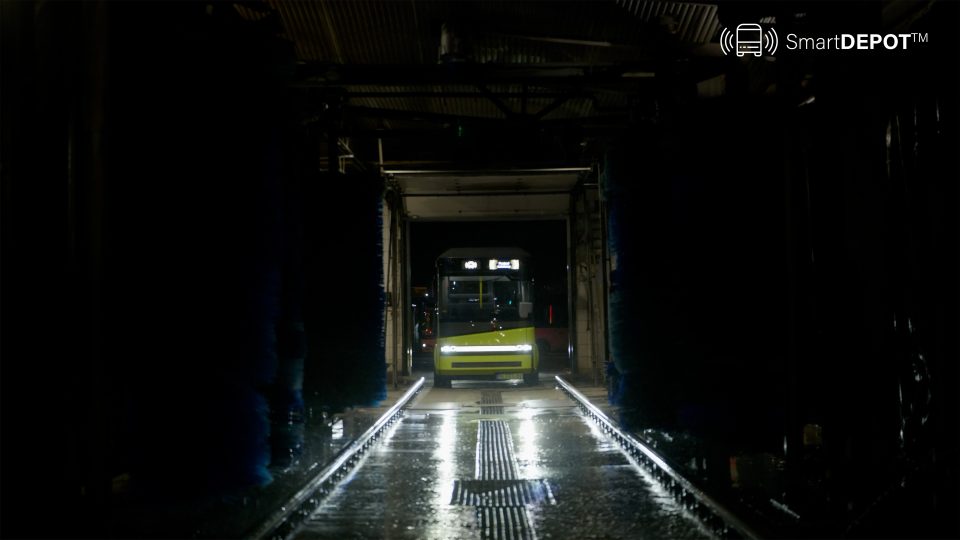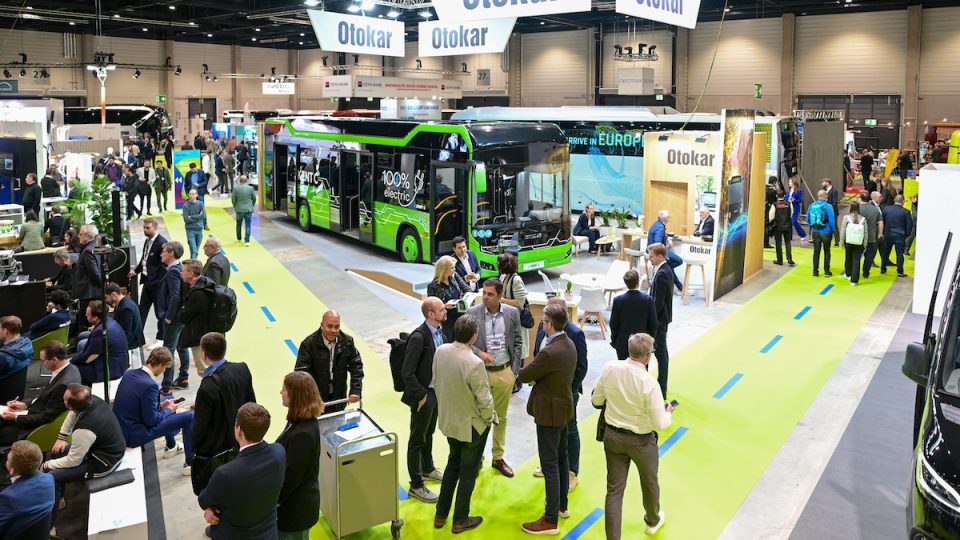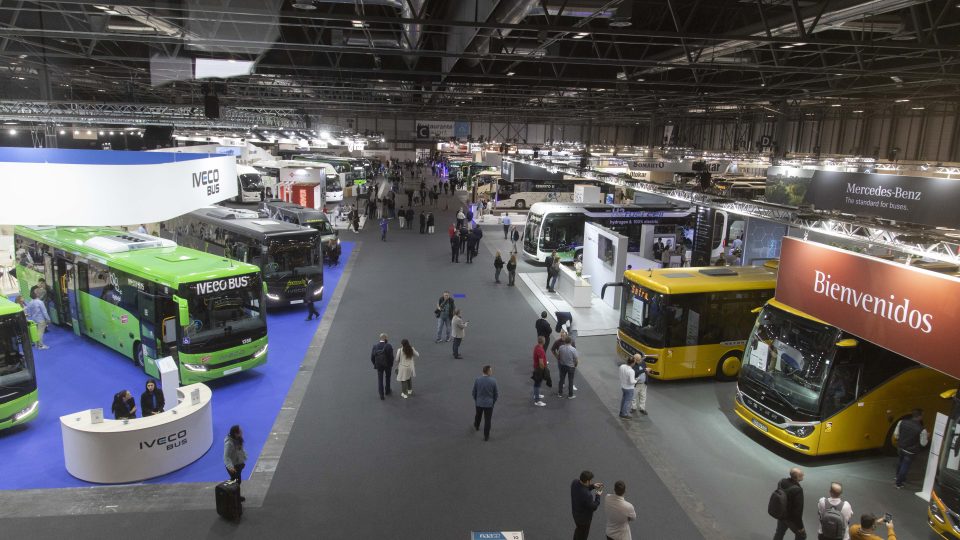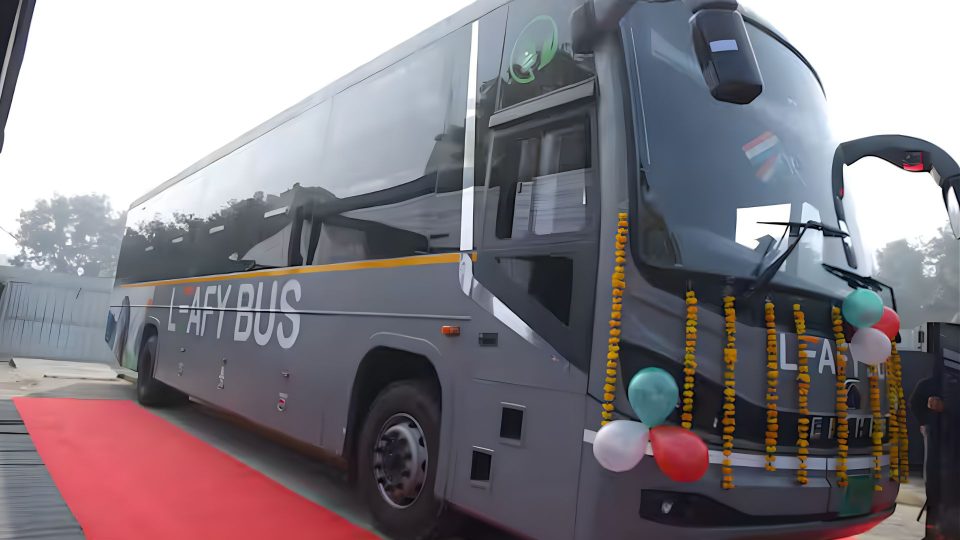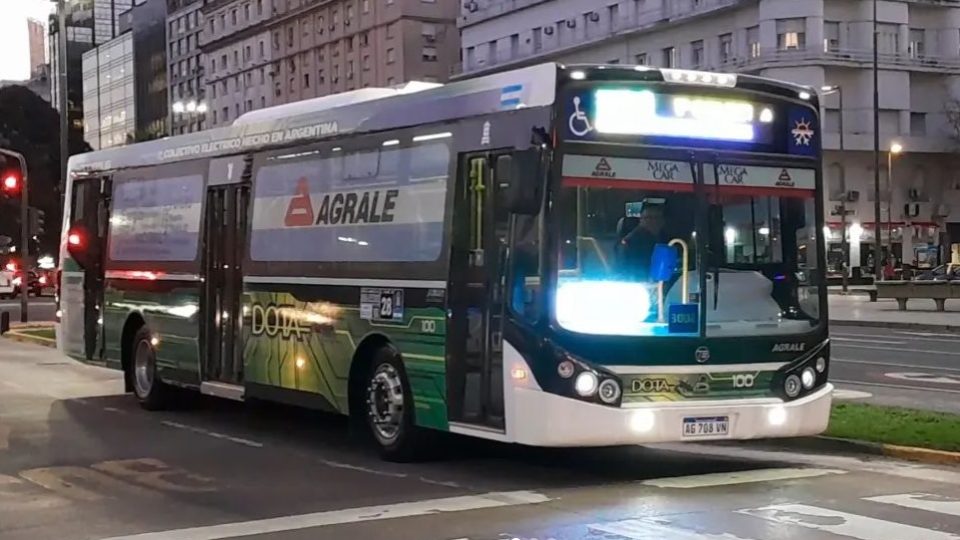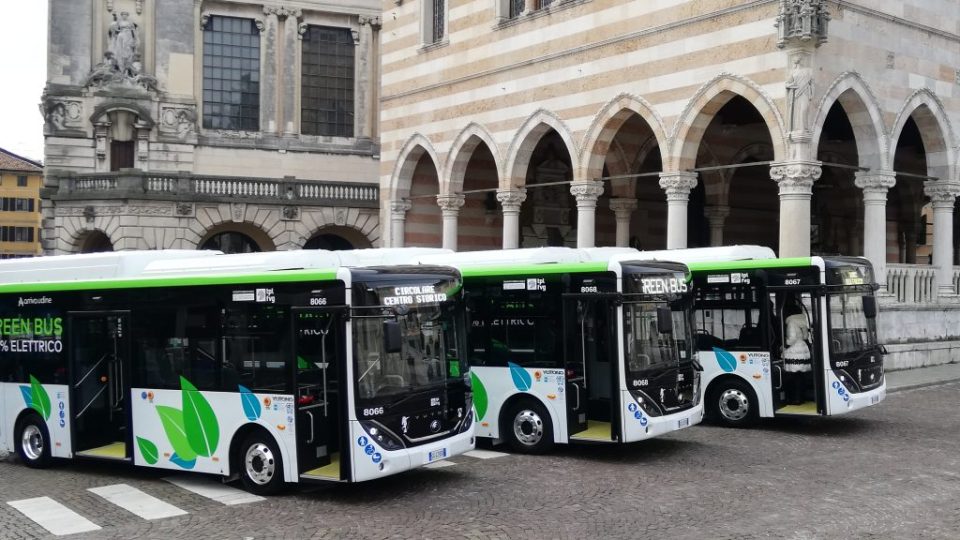Battery-electric vs fuel cell buses? New study found FCEB running costs are 2.3 times higher than BEBs
No, we’re not just throwing around random numbers, nor are we setting odds like bookmakers. That 0.55 and 1.27 followed by the euro symbol refer to the cost per kilometer of electric and hydrogen buses in service for SASA Bolzano. A new study found that, for the same mileage, FCEB operating costs are 2.3 times […]
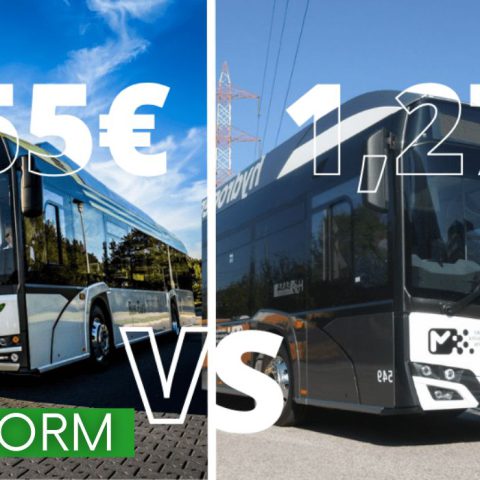
No, we’re not just throwing around random numbers, nor are we setting odds like bookmakers. That 0.55 and 1.27 followed by the euro symbol refer to the cost per kilometer of electric and hydrogen buses in service for SASA Bolzano. A new study found that, for the same mileage, FCEB operating costs are 2.3 times higher than those of BEBs.
SASA is the first operator in Italy to welcome these H2 vehicles into their fleet. The operator has one of the main fleet Europe-wide of fuel cell buses.
CLICK HERE FOR THE PAPER
Eurac research on zero-emission buses
Let’s break it down. The Eurac Research Institute for Renewable Energy, based in Bolzano, conducted a study as part of the LIFEalps project, funded by the EU under the LIFE IP program of the European Commission. The study, published in the Journal of Energy Storage, contains insightful data on the efficiency of battery electric buses and fuel cell buses and on their energy consumption with a focus on running costs for the two technologies (not the TCO, then).
The SASA fleet comprises 21 zero-emission buses (ZEBs), accounting for 7% of the total fleet. The rest consists of diesel, compressed natural gas, and hybrid vehicles. The fleet serves various sectors within these municipalities and spans 20 urban lines, 20 suburban lines connecting different communities, and 3 urban night lines. Of the 21 ZEBs, they are distributed as follows: three Solaris Urbino 12 BEBs, two Solaris Urbino 18 BEBs, five Mercedes O530 Citaro FCEBs, and twelve Solaris Urbino 12 hydrogen FCEBs. These buses cover part of the line service for at least 14 routes in Bolzano and Laives, each with specific technical specifications.
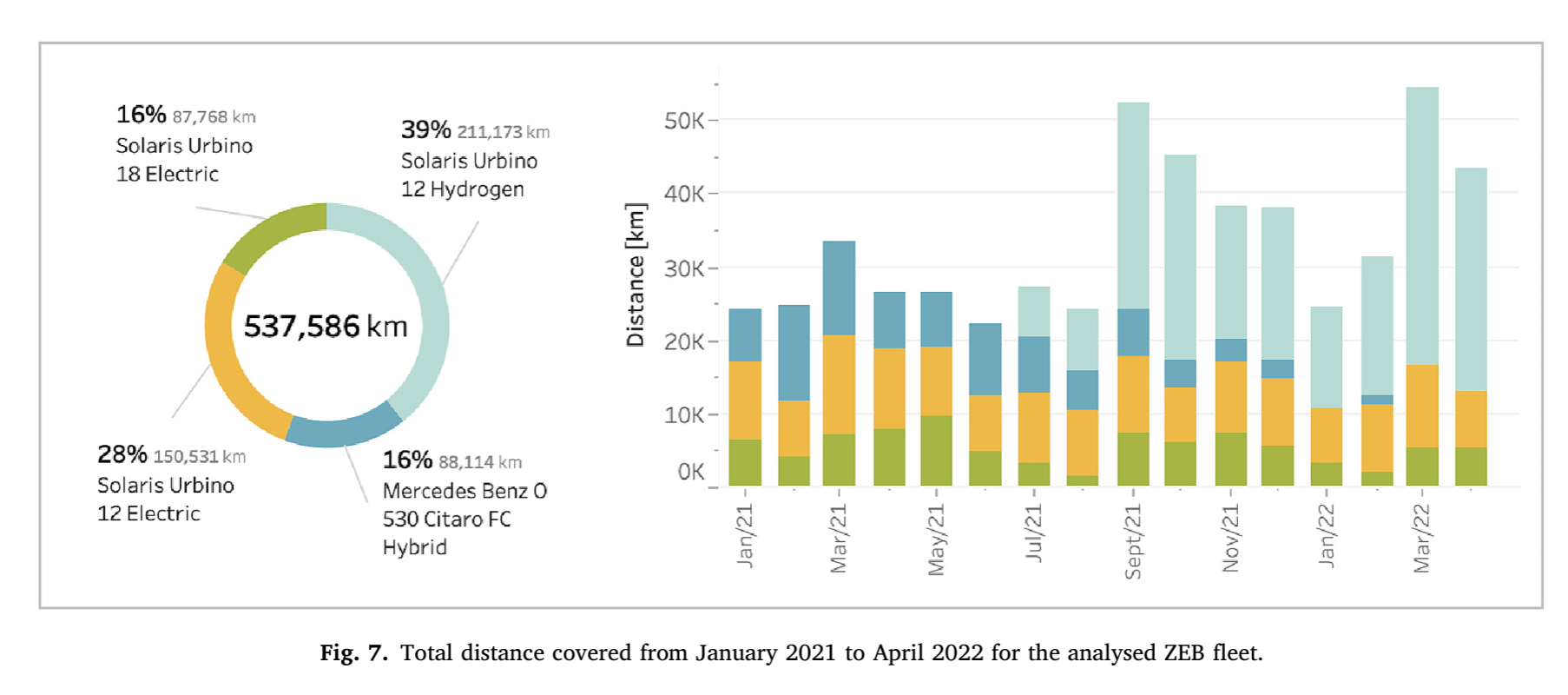
Since not all operational and logistic costs are publicly available, the study adopted the following publicly declared costs for consistency: i) €13.80 per kg H2 for public refueling and €0.40 per kWh for charging on public streets.
What about energy consumption? “The average monitored tank-to-wheel (TTW) efficiency for the two different FCEB models was 10.07 kg H2/100 km and 9.31 kg H2/100 km, while the monitored TTW efficiency for the two BEB models was 137 kWh/100 km and 153.80 kWh/100 km”, the study reads.
And the paper puts also a spotlight on the “a direct comparison of the efficiency of the two bus models: the hydrogen consumption has been converted to kWh using a conversion factor of 33.33 kWh/kg H2. This results in a TTW average efficiency of FCEB models of 310.24 kWh/100 km and 335.75 kWh/100 km, respectively. The TTW efficiency results of FCEBs are much lower than the efficiency of BEBs; in fact, it is between 2 and 2.45 times lower“.
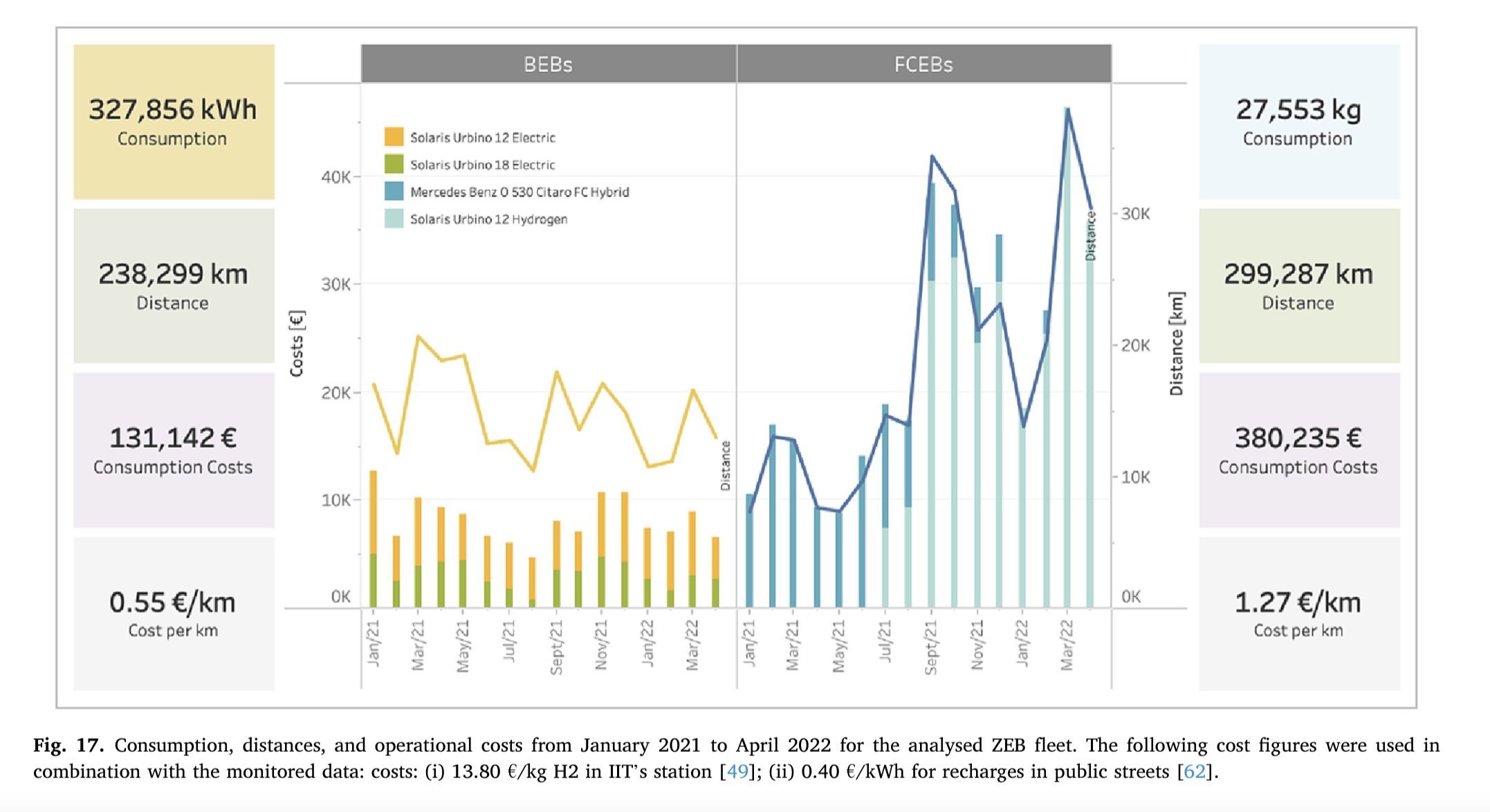
Fuel cell buses vs battery-electric buses
Based on this figure, from January 2021 to April 2022, after covering approximately 500,000 kilometers, SASA spent approximately €511,300 to refuel and recharge the ZEB fleet. Of these costs, 74% went towards refueling FCEBs, covering 56% of the distance, while 26% was allocated to BEB recharging, covering 44% of the distance.
Therefore, according to Eurac’s calculations, the operating costs for BEBs and FCEBs end up being €0.55/km and €1.27/km, respectively. This means that, for the same distance, FCEB operating costs are 2.3 times higher than those of BEBs.

Regarding the single bus model, operating costs for the Mercedes O530 Citaro and the Solaris Urbino 12 Hydrogen FCEB are €1.36/km and €1.23/km, respectively (about 10% lower for the latest delivered product). Operating costs for the Solaris Urbino 18 and Solaris Urbino 12 BEB are €0.58/km and €0.53/km (9% lower).
On the efficiency of battery-electric buses (with a ‘but’)
However, under certain conditions, fuel cell technology has proven to be more efficient than battery-electric technology. The results of the study indicate that there is a greater variability in energy consumption among battery-electric buses compared to fuel cell-powered counterparts. The study reveals that “For the FCEBs, the minimum TTW value is 14 % – 17 % lower as the overall average, while the maximum TTW is 16 % – 19 % higher as the overall average. Instead, the minimum TTW value for BEBs is 17 % – 26 % lower as the overall average, while the maximum value is 27 % – 72 % higher as the respective overall average“. Cold weather is the enemy.
For SASA Bolzano’s daily mission profiles, both technologies have proven effective, as stated by Wolfram Sparber, co-author of the study and head of the research institute: “The study shows that both technologies – hydrogen and battery electric buses – could be used successfully in daily operations allowing a clear reduction in on site emissions. The collected data show a high efficiency of battery electric buses. This leads on the one hand to a higher temperature sensitivity in their seasonal applications than hydrogen buses but on the other hand to considerably lower cost pre driven kilometre than hydrogen buses (if public available hydrogen / energy cost data are used)”.
In conclusion? In a nutshell, the numbers speak for themselves: the tank-to-wheel efficiency of electric buses surpasses that of hydrogen buses. The debate is open!


